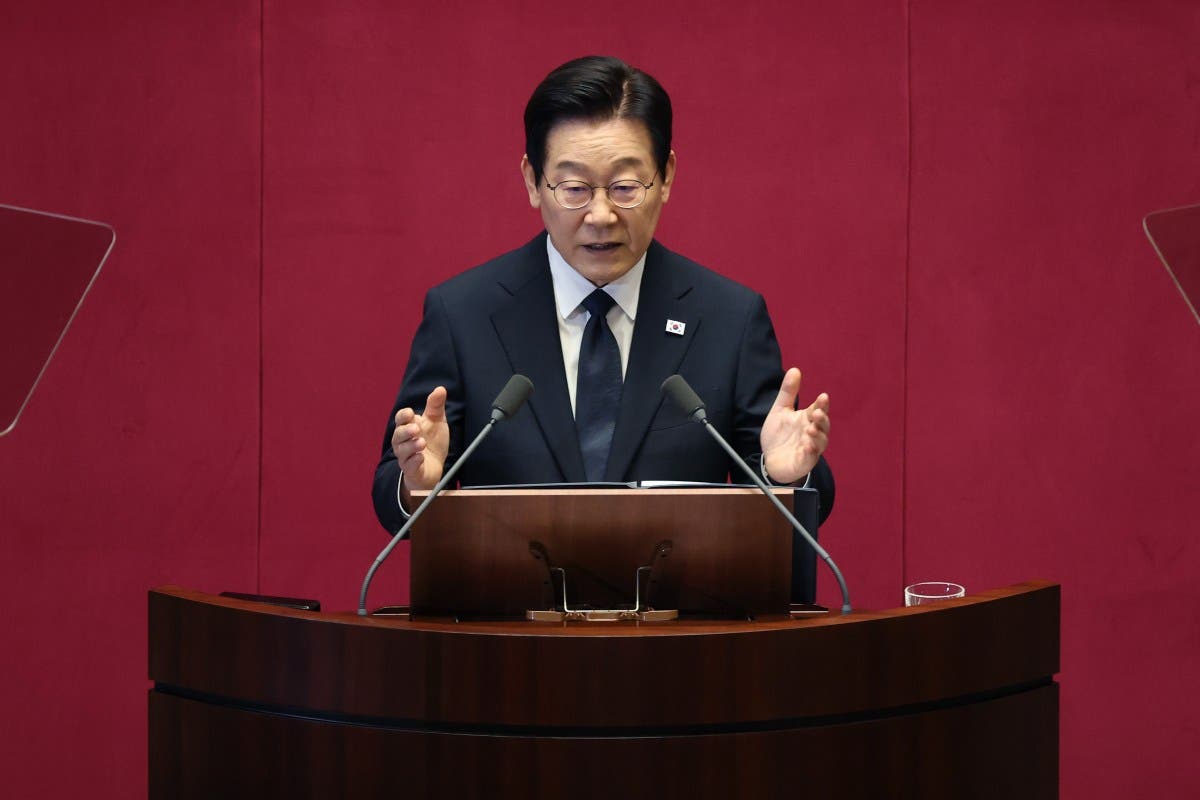Top Stories
South Korea Cracks Down on Online Hate Speech: Urgent Action Announced

URGENT UPDATE: South Korean President Lee Jae-myung has ordered police to intensify efforts against online hate speech, declaring that such behavior “crosses the boundary of freedom of expression.” This announcement comes amid growing anti-foreigner sentiment, particularly targeting Chinese nationals, as the nation grapples with a surge in demographic shifts.
Just this week, Lee emphasized the need for immediate action during a Cabinet meeting, stating that hate speech and disinformation on social media are “rampant.” He described the circulation of false information that promotes racial hatred as a direct threat to democracy and the daily lives of citizens, insisting it “must be regarded as a crime.”
The urgency of this crackdown is underscored by the record number of foreigners residing in South Korea, which hit 2.58 million last year—approximately 5 percent of the population. This demographic change has sparked increased protests and anxieties across the country, historically known for its homogeneity.
During the meeting, Lee stated, “Acts such as distorting or manipulating facts, spreading racial hatred or discrimination are unacceptable.” He called on the police to play a “particularly important role” in combating these issues. Notably, Lee also announced that all senior officials, including those from the National Human Rights Commission, would be held to the same standards regarding hate speech accountability.
“Far-right forces in Korea are spreading disinformation about China and organizing anti-China protests, which not only damage the friendship between our two countries but also tarnish Korea’s national image,”
said Dai Bing, the Chinese ambassador to South Korea, during a forum in Seoul on Tuesday.
In a significant move, Lee endorsed a proposal allowing for the immediate dismissal of civil servants found guilty of engaging in hate speech. This policy is expected to be implemented swiftly, as reported by the Korea Times.
Amid these developments, South Korea remains one of the few countries in the OECD without comprehensive anti-discrimination laws. Lee has voiced support for a parliamentary debate on introducing such legislation, modeled after frameworks in Japan and Europe. He also advocated for abolishing clauses in the criminal defamation law that penalize factual statements, arguing that these disputes should be resolved in civil court.
As tensions continue to rise, all eyes are on the South Korean government’s next steps in fostering a more inclusive society. The impact of these new measures will be closely monitored as citizens and officials alike navigate the evolving landscape of freedom of expression and hate speech.
Stay tuned for further updates as South Korea takes decisive action against online hate speech and seeks to reshape its social narrative.
-

 Science4 weeks ago
Science4 weeks agoInventor Achieves Breakthrough with 2 Billion FPS Laser Video
-

 Health4 weeks ago
Health4 weeks agoCommunity Unites for 7th Annual Into the Light Walk for Mental Health
-

 Top Stories4 weeks ago
Top Stories4 weeks agoCharlie Sheen’s New Romance: ‘Glowing’ with Younger Partner
-

 Entertainment4 weeks ago
Entertainment4 weeks agoDua Lipa Aces GCSE Spanish, Sparks Super Bowl Buzz with Fans
-

 Business4 weeks ago
Business4 weeks agoTyler Technologies Set to Reveal Q3 Earnings on October 22
-

 Entertainment4 weeks ago
Entertainment4 weeks agoMother Fights to Reunite with Children After Kidnapping in New Drama
-

 Health4 weeks ago
Health4 weeks agoCurium Group, PeptiDream, and PDRadiopharma Launch Key Cancer Trial
-

 World4 weeks ago
World4 weeks agoR&B Icon D’Angelo Dies at 51, Leaving Lasting Legacy
-

 Entertainment4 weeks ago
Entertainment4 weeks agoRed Sox’s Bregman to Become Free Agent; Tigers Commit to Skubal
-

 Health4 weeks ago
Health4 weeks agoNorth Carolina’s Biotech Boom: Billions in New Investments
-

 Science4 weeks ago
Science4 weeks agoNorth Carolina’s Biotech Boom: Billions Invested in Manufacturing
-

 Top Stories4 weeks ago
Top Stories4 weeks agoFormer Mozilla CMO Launches AI-Driven Cannabis Cocktail Brand Fast









